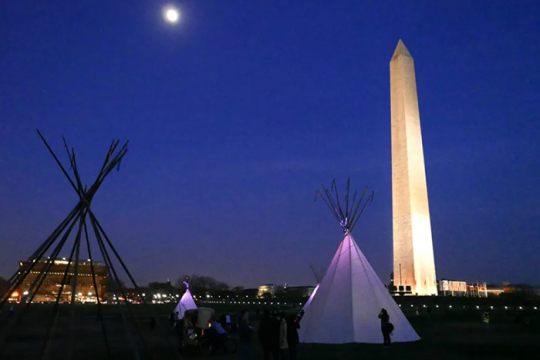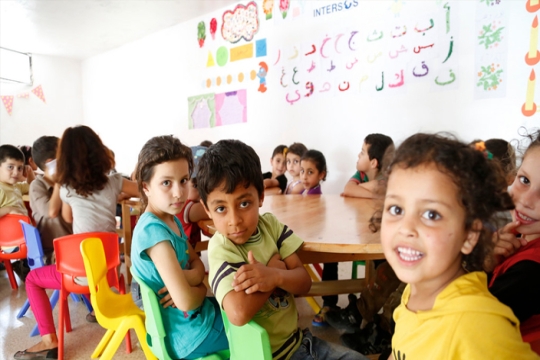.jpg)
With special thanks to the RAC-CA Sermon Campaign Team: RAC-CA Senior Organizer Rabbi Julie Saxe-Taller, Rabbi Suzanne Singer, and Rabbi Lisa Delson.
The story of the Binding of Isaac fascinates me because, despite being the eponymous character, Isaac speaks only once, to ask his father, "Here are the firestone and the wood; but where is the sheep for the burnt offering?" (Genesis 22:7)
I have long wondered: what must Isaac have been thinking as his father bound him and laid him across the altar? Isaac must have realized his father had lied to him - did Isaac cry out? Did Isaac see his father pick up the knife?
And perhaps, did Isaac see what his father did not see - the angel and the ram caught in the thicket?
In my role as the Environmental Justice and Climate Change LA, this story echoes in the work of young activists of today who channel their energy and passion into climate change redress. I wonder how they see - perhaps as Isaac saw - salvation for our dying planet. And I suspect that young activists believe that if they do nothing, they will be Isaac on the altar. And it will be our collective failure as responsible human beings that causes our children and grandchildren to die on a pillaged, destitute planet.
Salvation can come through t'shuvah, t'fillah, and tzedakah - repentance, prayer, and justice. Only by understanding the harms we've done can we attempt to correct them. Only by seeking help and expertise and thinking with conscious purpose can we make good. Only through justice can we envision and build a world powered by ethical and clean energy - an economy that does not leave any individual or community behind or in harm's way.
Despite significant advances in medicine and science, the Unetaneh Tokef's list of the ways in which humanity suffers and forfeits life are still as true as they were thousands of years ago. As modern as we are, as far as we have come, humanity is still fragile, vulnerable, human. Climate change and its cascade of ill-effects forces us to confront our own hubris and fear in order to mitigate what is bad now, so it will not be far devastating and irreversible later.
The dire consequences that loom in the Unetaneh Tokef mark the Days of Awe with a weight that we often try to soften, but this moment calls for its full unmitigated power. Human arrogance in our relationship to the planet coupled with disbelief that our collective actions could have such devastating impacts constitute transgressions for which the only antidote is t'shuvah, to make amends and repent - and in so doing, ensure our children and grandchildren are not Isaac on the altar.
A Climate Reading of the Unetaneh Tokef
On Rosh Hashanah it is written,
On Yom Kippur it is sealed:
How many will pass from the earth due to extreme heat,
how many will be created even as our children and grandchildren inherit a burning world;
who will live and who will die;
who will reach the ripeness of age thanks to stolen, pillaged wealth;
who will be taken before their time because they lived in a vulnerable nation;
who by California wildfire and who by Kentucky floodwater;
who by weapons of war - sword and gun - fueled by fossil fuel money and who by beast - animals who suffer because one species refuses to behave reasonably and make amends;
who by hunger in Madagascar and who by thirst in the increasingly-arid deserts of Jordan and Israel;
who by earthquake from fracking and who by plague or mosquito-borne illnesses;
who by strangling smog and who by landslides of stone and mud,
who will rest as the world burns and who will wander as a climate refugee;
who will be tranquil with ignorance and inaction and who will be troubled by anxiety and rage;
who will live in worsening poverty and whose prosperity will protect them…for the time being;
who will be degraded and sold as a child bride and who exalted for their pursuit of profit.
But t'shuvah, t'fillah, and tzedakah can temper judgement's severe decree .
Related Posts

Native American Heritage Month: Continued Support for the Indigenous Population is a Necessity

Congress Must Expand the Child Tax Credit, a Powerful Tool Proven to Reduce Poverty


